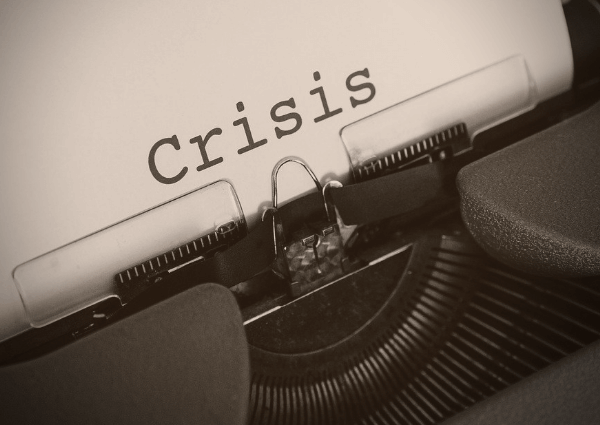
Working with expectations in a COVID business world
November 30, 2020
Is a business review of 2020 really worth it?
December 31, 2020Strange Year
We can all agree this year has been the one of the strangest in modern times. Businesses of all shapes and sizes have been affected and the state of the economy is looking bleak. But not all is doom and gloom.To help put things into perspective we must look back at historical events. By doing so a clear pattern or cycle emerges. Previous world events which devastated the course of our social, economic and political future did come to an end. And in the aftermath a new period of growth and prosperity emerged.
In the 20th century alone, the UK has been no stranger to dominating global downturns. From World War I (1914 to 1918), the Spanish Flu (1918 to 1920), World War II (1939 to 1945), the Great Depression (1929 to 1933), Oil crisis (1973 to 1974) to the Great Recession (2007 to 2009) there has been a pattern of decline and hardship.
Bounce back
From every crisis the world has bounced back, realigning itself, in a form of healing. It may have been slow, painful and disruptive but things did improve and the world has often appeared better adjusted. This proves we can take heart whilst once again we are in the midst of a global pandemic the wave shows we will recover.After World War II the globe entered into a period of economic expansion or formally entitled Postwar Economic Boom. Britain emerged as a world leader in the automobile, aviation, financial and computing industry. This supplied people with jobs lowering the unemployment rate, an upturn in GDP and an increase in trade until the next crisis experienced in the 1970’s.
Businesses can thrive after a crisis
It may seem at this time ludicrous, almost pointless to suggest starting a business in 2021 is a good idea. But why not? If the patterns can be believed then accelerated growth can be expected. In a 2014 article by Forbes, it stated that out of the top 100 companies around a third were forged after a crisis. This is positive and welcomed news, something entrepreneurs can cling to.Two men and a mattress
A great example was created by two guys Brian Chesky and Joe Gebbia in 2008 during the Great Recession. They were ordinary men living as housemates, struggling to pay their rent. Taking place in the region was an up and coming industrial design conference. Hoteliers had taken advantage and were at full capacity offering overpriced accommodation. Chesky and Gebbia needed money and decided to place three air mattresses on the floor charging for the privilege. They soon designed a website and today we know this thriving business as Airbnb.
Beginning with two people, the idea shows utilising whatever you have to get started. The cost of three airbeds now translates into a household name and according to data shows that around 2 million people stay in an Airbnb every night.
Success takes time
Most business owners will relate to the fact that triumph doesn’t happen overnight. It takes time, often following the ebbs and flows before reaching the height of success. Starting a business is only the beginning. Growing and developing strategy with the notion of long-term resilience is required.Typewriters to computers
In 1975 following the Oil Crisis an unknown pairing of Bill Gates and Paul Allen started the beginning of a global technological shift. At the time typewriters were common place in business environments and the pair were busy formulating microprocessors and software to enhance productivity. In 1980 IBM approached Gates to elicit a licensed operating system (MS-DOS) for their personal computer. Following this success, Gates went on to release what is known today as Windows and in 1988 an Office suite of applications. By 1995 as the internet took hold, the company introduced the web browser, Internet Explorer. This company is called Microsoft.
It proves that hard work, creativity, perseverance and willingness, matters for longevity as does creating business partnerships. The global corporation is constantly redeveloping making office administration easier for their 1.2 billion users around the world.
An ever-changing game
Like all businesses, corporations start small growing by recognising, listening and reacting to consumer behaviour. With every change they adapt, making it easier and more efficient for their customers to purchase goods and services. By adopting this approach, they not only move with the times but develop a reputation for being advanced thinkers and leaders in their field.Market stall to stores
In 1919 as World War I came to an end Jack Cohen made his entrepreneurial debut with a group of market stalls in Hackney, London. The household brand name first appeared in 1924 after Cohen purchased a shipment of tea from Thomas Edward Stockwell (his initials are part of the name). The first store opened in 1929 and by 1934 a modernised warehouse with state-of-the-art stock control and headquarters was established in Edmonton. By 1947 the company opened its first self-service store, a revolutionary idea for its time so customers could browse and purchase their own goods rather than waiting in a queue behind a counter. We know this company as Tesco.
One man began not by plummeting forward with a grand idea but by careful design, testing the waters before expanding. Having ridden economic, troubled times and competitive waves they now have 7,000 stores selling electronics and other items alongside groceries and of course tea.
COVID versus normality
So, what can we learn from the above? The biggest takeaway is that entrepreneurs have an inherent ability of crafting a solution, starting small, effectively building something out of nothing. They don’t see downturns or bad economies; they envisage an opportunity and aren’t afraid to try it even in the gloomiest of times.Today we talk of returning to normal, but after a crisis normal doesn’t return it shifts creating a new normality until the next catastrophe hits. It changes, adapts and develops, as do we and those business leaders who recognise this and take affirmative action will survive. By being proactive, they don’t wait for the crisis to evade, they instead react, forging plans to accommodate not only an exit strategy but a continuance into the future. In short, they don’t just survive they thrive.
They do this by:
• Plugging a gap in the market
• Dominating market share
• Recognising need for improvements
• Reacting to consumer demand
• Embracing strategy through advancement
• Timing growth against economic climates
• Utilising technology and digitalisation
• Determination to succeed
• Strategizing beyond the crisis
Conclusion
Weathering a storm is not an easy task for any business. Large corporations often find it tougher, because they have more to lose. Before a crisis hits, they are already fighting against mounting debts, high overheads, increased turnover of staff and demand in competition, yet they continue to operate. To achieve this, they change over time, always on the lookout for opportunities to evolve.For small businesses they face a threefold challenge. One, the need to compete against larger companies, two against an influx of smaller competitors and three, being self-sufficient in a crisis. Their size is their advantage. Functioning with lower numbers of staff and a reduction in bureaucracy, something which impedes bigger businesses. They work with shorter and more amenable supply chains giving greater control and diversity when trouble strikes. They can manipulate situations and make decisions quickly and are often more creative in their technological approaches.
If a crisis has global reaching, it can’t be a game of luck or simply waiting for the economy to bounce back. The winners will be those with effective managements teams, that foresee a route out of the problem and into the solution. It’s a playing field for the strong minded, the determined and those who can steer through and beyond whatever comes their way. If you have what it takes, don’t wait for the new normal, start your business idea today. When the world looks back at the 21st century crisis you might be one of the success stories.





